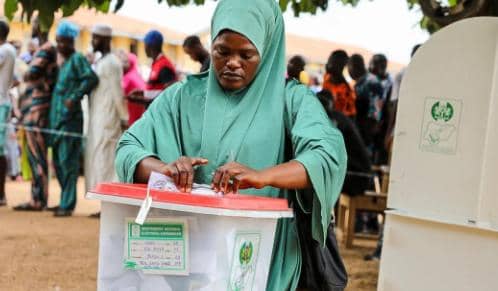Human rights lawyer Femi Falana has condemned Nigeria’s proposed compulsory voting bill.
He argues the bill violates key constitutional rights, Diaspora Digital Media (DDM) gathers.
The bill was introduced by House Speaker Abbas Tajudeen.
It recently passed second reading in the National Assembly.
Falana says lawmakers failed to consider constitutional implications of mandatory voting.
He insists voting should remain a voluntary civic duty.
In a legal brief, Falana described the bill as fundamentally flawed.
He referenced Sections 37, 38, 77(2), 135(5), and 178(5) of the 1999 Constitution.
These sections guarantee privacy, freedom of thought, and voluntary political participation.
Falana cited Nigerian court cases to back his claims.
In Nwali v. Ebonyi State IEC, open ballot voting was ruled unconstitutional.
The court emphasized every voter’s right to a private voting decision.
Falana also referenced Medical and Dental Tribunal v. Okonkwo.
That ruling affirmed the right to reject medical treatment on religious grounds.
He said this highlights the constitutional right to conscience and belief.
In Lagos State v. AbdulKareem, the Supreme Court upheld Muslim students’ right to wear hijabs.
This reinforced religious freedom and protection from discrimination.
Falana believes the bill would face strong legal resistance.
He said Nigeria’s courts are likely to strike it down.
Beyond legality, he questioned the bill’s practicality and enforcement.
“How will millions of voters be prosecuted?” Falana asked.
He criticized elections as mere renewal of political misgovernance.
He stressed that trust in leadership must be restored first.
Falana urged lawmakers to focus on real electoral reform instead.
He wants BVAS and IREV backed by law.
Though included in guidelines, these technologies lack statutory support.
He cited the Supreme Court’s decision rejecting their legal force.
Falana said the Electoral Act must be amended immediately.
He recommended the Uwais Electoral Reform Panel’s proposals be adopted.
These include unbundling INEC and introducing proportional representation.
He also proposed a commission to punish electoral offences.
Timely court decisions on election petitions should be prioritized.
Falana said real reform matters more than forcing people to vote.
He acknowledged Section 14(2) encourages popular participation in democracy.
However, he added, voting cannot be compulsory in isolation.
He said Chapter II rights must be enforceable first.
He also cited Article 13(1) of the African Charter.
It supports the right to participate freely in governance.
Falana concluded compulsory voting contradicts both national and international law.
He called for deep reforms before any voter obligation is introduced.
Kindly share!!







